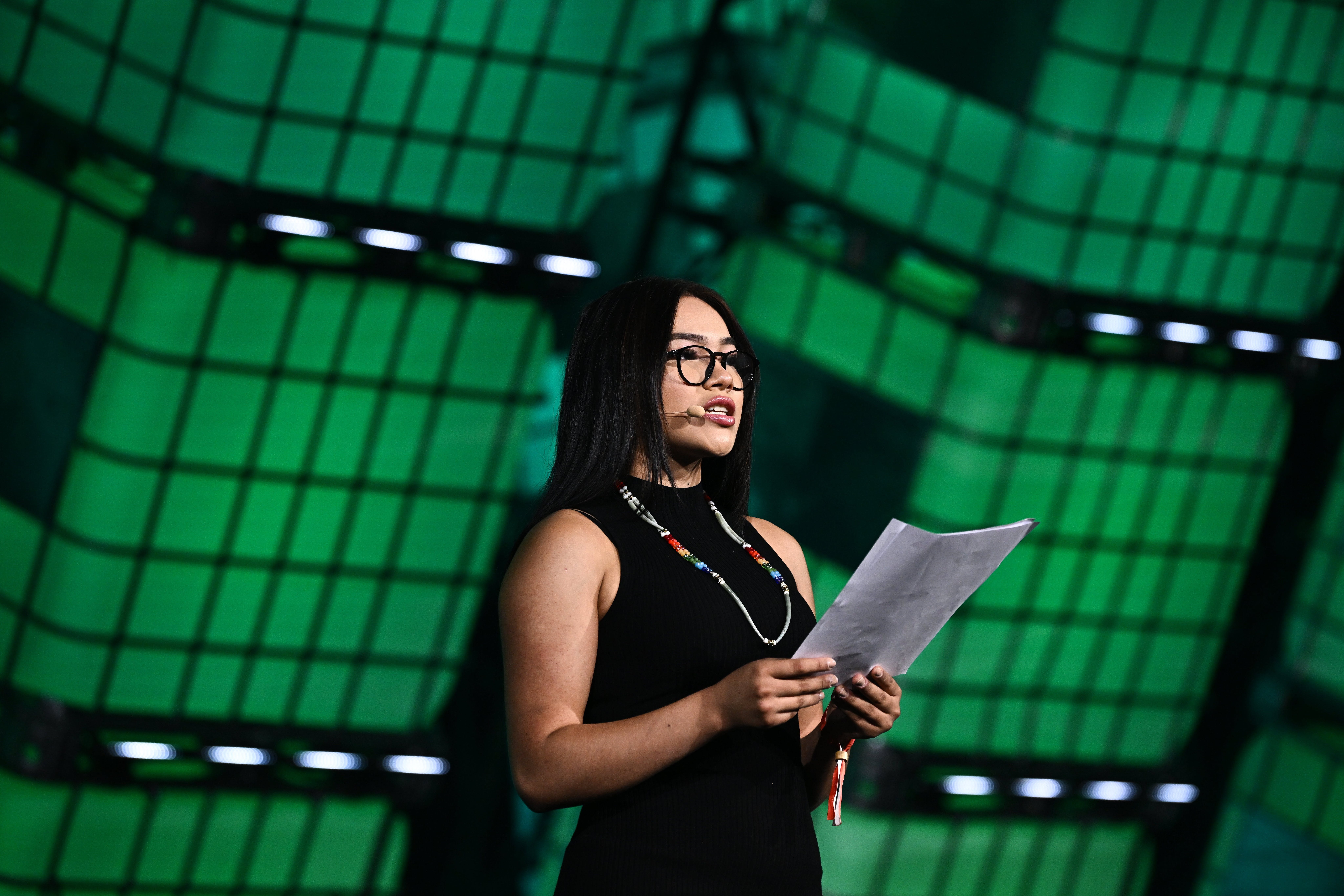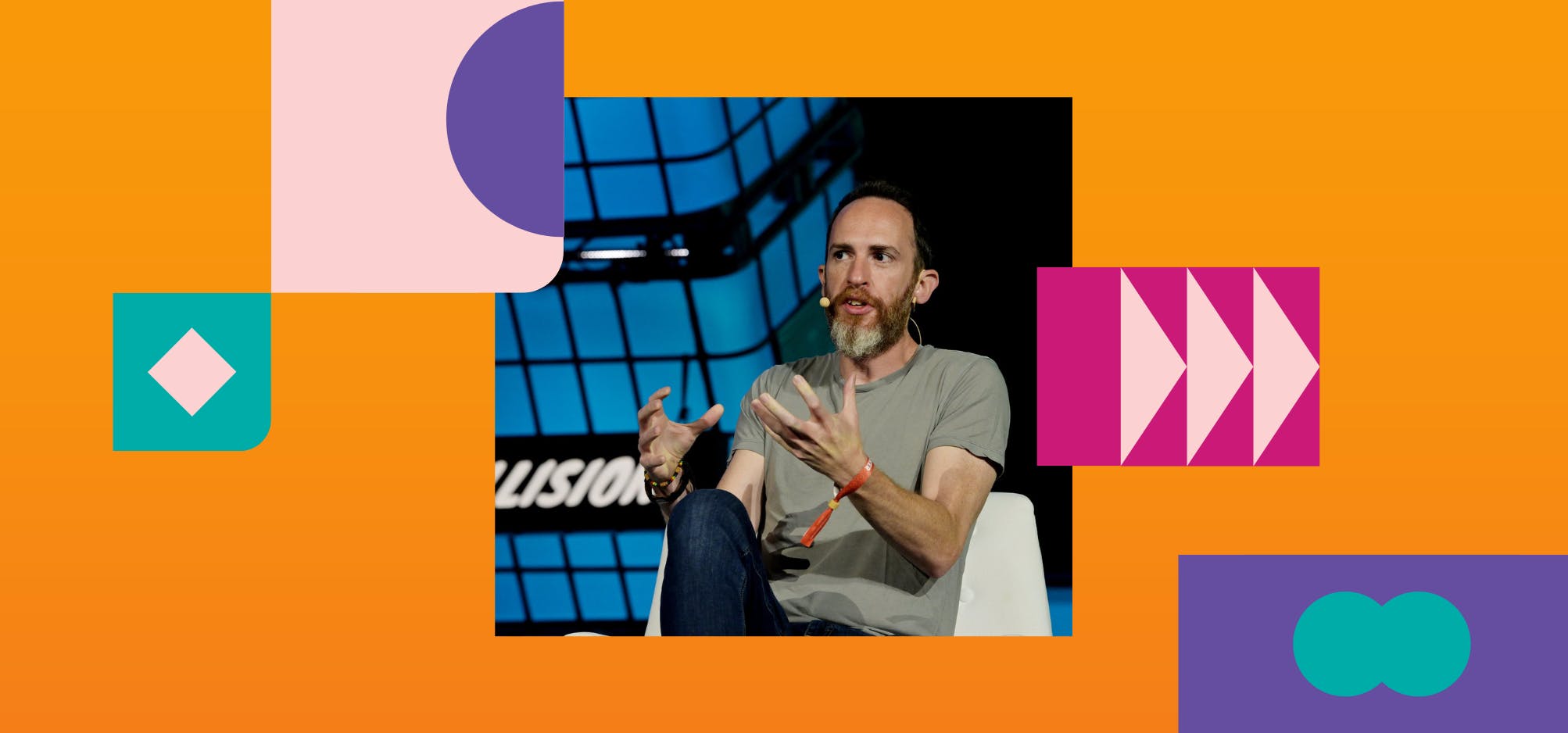
What did you miss at Collision 2023?

Didn’t make it to our Toronto event? Here’s what you missed this year at Collision.
Our North American event, which gathered more than 36,000 attendees from 118 countries and featured a record-breaking 30 percent women-founded startups, once more lived up to its reputation as the “tech Olympics”.
At our fifth annual Toronto event, we were joined by speakers including AWS CEO Adam Selipsky, Conviction founder Sarah Guo and godfather of AI Geoffrey Hinton.
With jam-packed fun spanning over three days and nights, Collision 2023 was an event we won’t soon forget.
Here are some of the highlights from this year’s event.
Highlights from Opening Night
 Collision After Hours at Grand Bizarre. Image: Harry Murphy/Web Summit(CC by 2.0)
Collision After Hours at Grand Bizarre. Image: Harry Murphy/Web Summit(CC by 2.0)
On the Opening Night of Collision 2023, attendees were invited to explore Toronto’s Grand Bizarre, a premier supper club furnished with world-class dining, live entertainment and the opportunity to collaborate with fellow attendees after hours.
Collision Day 1
While AI was the most popular topic of this year’s event, Day 1 highlights included discussions about sustainability, the future of AWS, and advertising under the veil of free TVs.
‘I’m not interested in TikTok; I’m interested in a better tomorrow’
“I’m not an 18 year old interested in TikTok trends. I’m interested in a better tomorrow for those behind us,” said Indigenous rights and water activist Autumn Peltier during a spot on Centre Stage.
“Mother Earth is hurting right now. If we look around, we can see it. Many people throw around the word ‘sustainability’ yet don’t put the rubber boots on their feet,” added the activist.
Autumn reflected on what message would best resonate with “thousands of fresh thinkers”, before going on to explain that, although technology can help, true sustainability begins with listening to Indigenous voices who have generations of knowledge of their land.
’We’re about three steps into a 10k race’
Amazon might not be the first name on everyone’s lips when it comes to generative AI, but AWS CEO Adam Selipsky thinks it may well become that in the long run.
 Adam Selipsky, CEO of AWS. Image: Vaughn Ridley/Web Summit(CC by 2.0)
Adam Selipsky, CEO of AWS. Image: Vaughn Ridley/Web Summit(CC by 2.0)
“Customers need enterprise-grade security and privacy. I’ve talked to at least 10 Fortune 500 CIOs, and they’ve banned ChatGPT from their enterprises because it’s not secure.
“We’re taking a full-stack approach: chips at the bottom, Bedrock in the middle, and a bunch of solutions and applications built on this,” said the CEO, explaining that Amazon is putting “a ton of resources” into GenAI right now – and it’s all encrypted.
“We’re excited about putting additional generative AI capabilities into Alexa. Its vision is to become your true personal assistant who really knows you.” And it’s too early to call a winner in this space. “Any one company that you and I point to could turn out to be a huge winner. Or they might not be, like AltaVista. We’re about three steps into a 10k race,” said Adam.
Are free TVs the future of advertising?
TV advertising might seem an unlikely hotbed of innovation in the year of AI, but Mntn (whose creative director is actor Ryan Reynolds) thinks there’s life in the small screen yet.
CEO and president Mark Douglas said the ad agency recently partnered with Telly, a company giving away free 55-inch 4K TVs. Despite announcing its product only one month ago, more than 250,000 people have signed up.
What’s the catch? Each television has a second screen with capacity for ads, and a LiDAR-equipped soundbar that can detect presence and even tell how many people are in the room when ads are playing.
“In the digital ad space, there’s this constant push and pull of ad verification,” pointed out Mark Stenberg, senior media reporter for Adweek. “The ad showed up on the screen, but did the person look at it? Was it on the screen for long? Theoretically, they might have gone to the bathroom or to make popcorn.”
Collision Day 2
From picking up the pieces after the collapse of Silicon Valley Bank (SVB) to establishing ethical guidelines on the use of AI in the workplace, Day 2 proved thought-provoking for our attendees.
AI + content creation = social isolation
On PandaConf, Twitch chief product officer Tom Verrilli made the case for community-based content creation, taking aim at the limitations AI has when it comes to producing an emotional response in its audience.
“Low-cost AI can be a threat to the online communities in which it is integrated.”
– Tom Verrilli, Chief Product Officer of Twitch
“One version of the future is that these algorithmically powered tribal networks are full of content – not even created by a person, but an algorithmically created content distributed by an algorithm, for very lonely and isolated consumption,” said Tom.
“Low-cost AI can be a threat to the online communities in which it is integrated,” Tom continued. “If I can distribute with no cost, it also means that I can be a troll at no cost, and in volume. And it means the cost of being a creator is going to go up in terms of the amount of abuse I have to put up with.”
Media outlets begin developing guidelines for AI use
“It’s very important for us to set expectations and have some clarity – some transparency – about what we would, or wouldn’t use AI for. Because I think establishing trust is really important,” said Gideon Lichfield, global editorial director at Wired.
Media outlets have already begun experimenting with AI, sometimes with less than ideal results. This was the case with CNET, which used ChatGPT to write entire articles, sometimes with mistakes.
When it comes to commissioning artists for Wired, GenAI tools will be allowed, but only if they are used by the artists themselves to augment their work, rather than replacing it wholesale.
Fast Company’s global technology editor Harry McCracken said they are following suit, and have formed a taskforce to figure out how GenAI will play a role in future.
SVB: WTF?
 Alfred Chuang, Co-founder & General Partner, Race Capital; Eva Ho, General Partner, Fika Ventures; Michael Yang, Managing Partner, OMERS Ventures; Allie Garfinkle, Senior Tech Reporter, Yahoo Finance. Image: Vaughn Ridley/Web Summit(CC by 2.0)
Alfred Chuang, Co-founder & General Partner, Race Capital; Eva Ho, General Partner, Fika Ventures; Michael Yang, Managing Partner, OMERS Ventures; Allie Garfinkle, Senior Tech Reporter, Yahoo Finance. Image: Vaughn Ridley/Web Summit(CC by 2.0)
The ripples of the collapse of SVB are still being felt across the tech sector, even if things have stabilized for now. “SVB was really embedded in our ecosystem,” said Michael Yang, managing partner at OMERS Ventures. “Now you have to go to non-bank lending institutions, because I don’t think the big banks have the gumption.”
A lack of liquidity for VCs means they can’t supply as much runway for early-stage startups, creating a major pressure point for a large section of the industry. “One of the things that people underestimated is how fiscally poorly we manage money in general in Silicon Valley,” said Alfred Chuang, co-founder and general partner at Race Capital.
Lessons are being learned quickly, though, with VCs and founders brushing up on their knowledge of banking and treasury regulations. It’s been a tough education for many. “I think it was a lesson that needed to be taught, because, before, there was no discipline. Everyone had too much cash,” said Eva Ho, general partner at Fika Ventures.
Collision Day 3
 Catharina Lavers Mallet, VP & General Manager, Maxis & The Sims (Electronic Arts). Image: Piaras Ó Mídheach/Web Summit(CC by 2.0)
Catharina Lavers Mallet, VP & General Manager, Maxis & The Sims (Electronic Arts). Image: Piaras Ó Mídheach/Web Summit(CC by 2.0)
AI and machine learning? The Sims has been doing it for 23 years
“AI is the word of the day, right, but the Sims and Maxis have been working through simulation and more or less sentient, AI little Sims for 23 years now,” said Catharina Lavers Mallet, VP and general manager of Maxis and The Sims franchise at Electronic Arts.
Catharina went on to say that the enduring appeal of this PC game (the most popular game by far amongst millennial and gen z women gamers) is a combination of customisation and self expression mixed with the AI, which brings an unpredictable, chaotic element to gameplay.
Beyond this, the VP pointed out that another cornerstone of Sims appeal is that it has a large and growing creators community that predates the current era of creators across TikTok and Instagram.
This community engagement extends to Project Rene (aka The Sims 5), which is in development right now with active input from fans and creators, explained Catharina, who hinted that there will be a social element like the ability to play with friends.
Syzl wins PITCH 2023
Syzl – a Toronto-based b2b hospitality marketplace – has been named the winner of Collision’s PITCH competition, seeing off 500 rival businesses in the process. After navigating competitive group stages and surviving the semi-final cull, Syzl, Fractionum, and NLPatent made it to the final, which took place on Centre Stage on the final day of Collision.
 PITCH winner Azrah Manji-Savin, Syzl. Image: Ramsey Cardy/Web Summit(CC by 2.0)
PITCH winner Azrah Manji-Savin, Syzl. Image: Ramsey Cardy/Web Summit(CC by 2.0)
Syzl, founded by Azrah Manji-Savin, is a fast growing platform, revolutionizing the food industry by connecting food makers with underutilized commercial kitchen spaces. The app currently caters to more than 1,000, and has 70 kitchens in the platform.
Azrah attended last year’s Collision in the very early days of the business, before they had a minimum viable product. It was here that Azrah met a developer who would go on to become a key member of the Syzl team.
By excluding people with criminal records, is the tech industry ignoring an untapped resource?
When it comes to hiring, companies are missing out on a massive, untapped talent pool; people with criminal records. To highlight this issue, Daniel Yanisse, co-founder and CEO at Checkr, took to the Remote stage. “Industries are struggling to find enough qualified workers. especially if there’s not a lot of immigration which in the US is a big challenge,” said Daniel.
Checkr isn’t just an advocate for a change to HR processes to include those with criminal records. The company also practises what it preaches. “At Checkr we started hiring people directly from prison about five or six years ago,” said Daniel. “I personally met amazing people in prison who are so driven, they studied multiple college degrees, they were so eager to turn their life around. And when we gave them some opportunities, they really succeeded, flourished, and became our best employees.”
Daniel pointed to some individual stories in particular: “One of our reps in customer support, JJ, was wrongfully convicted of very severe crimes and spent decades in prison, but was eventually released. No one would give him a job because they thought his background was scary. Then I talked to him. We gave him a chance. He’s been one of our most successful employees for six years now, been promoted to different teams, and is a manager now.”
If you missed Collision this year, don’t worry. You can pre-register for 2024 now and get 50% off your ticket. See you in Toronto next June.
Main Image: Autumn Peltier. Image: Harry Murphy/Web Summit(CC by 2.0)

